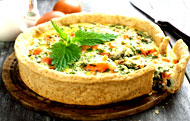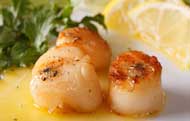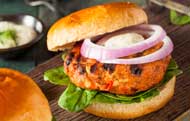





1. Rocket Facts
2. Types of Rocket
3. Rocket Nutritional value
4. Rocket Health Benefits
Rocket, eruca, or arugula (Eruca sativa), is a fast-growing leafy green vegetable with a characteristic spicy, peppery flavour, often used fresh in salads, on pizzas, and with pasta, though it can also be used in stir-fries and as a spinach substitute.
History and Origin
Rocket, also known as arugula, originated in the Mediterranean region, with the ancient Romans and Egyptians cultivating it for its peppery flavour, medicinal uses, and as a supposed aphrodisiac. While valued in Roman cuisine and as an ingredient in other parts of Europe, its widespread use declined due to its "salacious reputation," leading to its near disappearance from British gardens for centuries. It later made a comeback in Italy and was reintroduced to other parts of Europe, eventually becoming an international culinary staple thanks to Italian immigrants and a modern appreciation for its nutritional and culinary qualities.
- • Salad Rocket (Eruca sativa)
- • Wild Rocket (Diplotaxis tenuifolia)
- • Raspberry Rocket™
The two main types of rocket grown and sold in Australia are Salad Rocket (Eruca sativa) and Wild Rocket (Diplotaxis tenuifolia). Salad rocket is an annual with a quick growth habit, while wild rocket is a perennial that is hardier and has a stronger, more peppery flavour. A specific variety called Raspberry Rocket™ is also available, which is a type of raspberry, not the leafy green herb.
Salad Rocket (Eruca sativa): Also known as Arugula or Roquette.
Growth habit: Annual plant that grows quickly.
Flavour: A milder, peppery taste.
Maturity: Becomes more bitter and peppery as it matures.
Wild Rocket (Diplotaxis tenuifolia): Also known as Perennial Rocket, Wall Rocket, or Sylvetta.
Growth habit: Perennial plant, meaning it lives for multiple years.
Flavour: Stronger and spicier, with a nutty flavour.
Maturity: Slower to grow, but with a longer shelf life than salad rocket.
Note: It is considered a weed in some states like Victoria and South Australia.
Raspberry Rocket™: This is a special variety of raspberry, not the leafy green herb, Raspberry Rocket™.
It is known for its upright, columnar shape, requiring no staking.
It is a floricane variety, meaning it fruits on second-year growth.
Fruit: Teardrop-shaped and intensely dark red.
Growing conditions: Best suited for pots, containers, or hedges in full sun to part shade, though it is not recommended for the warmer coastal parts of Queensland or northern New South Wales.
Vegetables " Rocket "
Nutritional value per 100 g
Arugula, raw
| Nutrient (Proximity) |
Unit
|
Value
|
Daily Value %
|
|
Energy
|
kcal
|
25 | 1.2% |
|
Protein
|
g
|
2.58 | 5.1% |
|
Total lipid (fat)
|
g
|
0.66 | 0.8% |
|
Carbohydrate, by difference
|
g
|
3.65 | 1.3% |
|
Fiber, total dietary
|
g
|
1.6 | 5.7% |
|
Sugars, total
|
g
|
2.05
|
|
|
Minerals
|
|||
|
Calcium, Ca
|
mg
|
160 | 12.3% |
|
Iron, Fe
|
mg
|
1.46 | 8.1% |
|
Magnesium, Mg
|
mg
|
47 | 11.1% |
|
Phosphorus, P
|
mg
|
52 | 4.1% |
|
Potassium, K
|
mg
|
369 | 7.8% |
|
Sodium, Na
|
mg
|
27 | 1.1% |
|
Zinc, Zn
|
mg
|
0.47 | 4.2% |
|
Copper, Cu
|
mg
|
0.076 | 8.4% |
|
Manganese, Mn
|
mg
|
0.321 | 13.9% |
|
Selenium, Se
|
mcg
|
0.3 | 0.5% |
|
Vitamins
|
|||
|
Vitamin C, total ascorbic acid
|
mg
|
15.0 | 16.6% |
|
Thiamin (B-1)
|
mg
|
0.044 | 3.6% |
|
Riboflavin (B-2)
|
mg
|
0.086 | 6.6% |
|
Niacin (B-3)
|
mg
|
0.305 | 1.9% |
|
Pantothenic acid (B-5)
|
mg
|
0.437 | 8.7% |
|
Vitamin B-6
|
mg
|
0.073 | 4.2% |
|
Folate, total (B-9)
|
mcg
|
97 | 24.2% |
|
Vitamin B-12
|
mcg
|
0.00
|
|
|
Vitamin A, RAE
|
mcg
|
119 | 13.2% |
|
Vitamin E (alpha-tocopherol)
|
mg
|
0.43 | 2.8% |
|
Vitamin D (D2 + D3)
|
mcg
|
0
|
|
|
Vitamin K (phylloquinone)
|
mcg
|
108.6 | 90.5% |
|
Lipids
|
|||
|
Saturated Fatty Acids
|
g
|
0.086
|
0.4% |
|
Monounsaturated Fatty Acids
|
g
|
0.049
|
|
|
Polyunsaturated Fatty Acids
|
g
|
0.319
|
|
|
Trans Fatty Acids
|
g
|
0.000
|
|
|
Carotenoids
|
|||
|
Beta-Carotene
|
mcg
|
1424
|
|
|
Alpha-Carotene
|
mcg
|
||
|
Beta-Cryptoxanthin
|
mcg
|
||
|
Lutein + zeaxanthin
|
mcg
|
3555
|
|

|
Reference Values are based on a 2,000 Calorie Intake, for Adults and Children 4 or More Years of Age. Your daily values may be higher or lower depending on your calorie needs.
|
|
Percentages are roughly approximated using (RDA) Recommended Dietary Allowances for adults. Source: USDA United States Department of Agriculture
|
|
Reference Values for Nutrition - FDA U.S. Food and Drug Administration
|
Rocket Nutritional Value
Rocket provides health benefits such as reduced cancer risk, improved bone health, and enhanced eye health due to its rich content of vitamins, minerals, and antioxidants. It is an excellent source of vitamins A, C, and K, minerals like calcium, potassium, and magnesium, and antioxidants like glucosinolates, lutein, and beta-carotene. Arugula is also low in calories and can support heart and liver health.
- BONE HEALTH
Rocket supports bone health by providing essential nutrients like calcium, magnesium, and vitamin K. Calcium is a fundamental building block of bone, while magnesium aids in its absorption. Vitamin K is vital for bone formation and maintenance, and its deficiency increases the risk of fractures. - HEART HEALTH
Rocket, or arugula, supports heart health by providing nitrates that relax blood vessels, antioxidants like glucosinolates that reduce oxidative stress, vitamin K which helps prevent arterial calcification, and fiber that lowers LDL cholesterol. As a cruciferous vegetable, it contains phytochemicals and nutrients such as potassium and magnesium, which help lower blood pressure and improve circulation, reducing the risk of heart disease. - PACKED WITH ANTIOXIDANTS
Rocket is packed with antioxidants like beta-carotene and vitamin C, which help protect cells from damage, reduce inflammation, and boost the immune system. It's also a good source of vitamins A and K, essential for vision and bone health, and glucosinolates, compounds that may offer protective benefits against certain diseases. This peppery, leafy green contributes to overall well-being by aiding digestion, supporting healthy skin, and providing essential minerals. - ESSENTIAL FIBER
Rocket, also known as arugula, contains dietary fibre which is essential for digestive health and overall well-being. While the exact amount varies, rocket makes a good addition to your diet for gastrointestinal support and to help maintain cholesterol levels. - BENEFITS EYE HEALTH
Rocket benefits eye health by providing beta-carotene (which the body converts to Vitamin A, and the antioxidants lutein and zeaxanthin. These nutrients help maintain healthy vision, especially in low light, and protect the eyes from age-related conditions like macular degeneration and cataracts by filtering harmful light.

- RICH IN VITAMINS
Rocket, also known as arugula, is rich in Vitamin K, Vitamin A, and Vitamin C, which are crucial for bone health, blood clotting, vision, and immune function. It also contains folate, a B vitamin important for cell function. Additionally, rocket is a source of minerals like calcium, potassium, and magnesium, and contains beneficial phytochemicals such as glucosinolates and antioxidants. - ESSENTIAL MINERALS
Rocket is rich in essential minerals including calcium, folate, iron, potassium, magnesium, and copper. These minerals contribute to healthy vision, strong bones, balanced blood pressure, a robust immune system, and efficient blood clotting. - GLUCOSINOLATE
Glucosinolates are sulphur-containing plant compounds found in rocket (also known as arugula) that give it its characteristic pungent and bitter flavour and contribute to its health benefits. When rocket is chewed or cut, myrosinase enzymes hydrolyze glucosinolates, producing isothiocyanates and other products, such as sativin, which are thought to provide antioxidant and potential anti-cancer properties. Rocket contains several types of glucosinolates, including glucosativin (4-mercaptobutyl GLS) and glucoerucin (4-(methylthio) butyl GLS), with the overall levels and types varying by species and environmental factors. - CANCER PREVENTION
Rocket is an important leafy vegetable crop and a good source of antioxidants and anticancer molecules such as glucosinolates and other sulphur compounds. - WEIGHT MANAGEMENT
Rocket supports weight management because it is a very low-calorie, high-fiber, and high-water-content food that helps you feel full, with fewer calories, reducing overall calorie intake. Its high nutrient density also provides essential vitamins, minerals, and antioxidants without contributing significantly to your daily calorie count, making it an excellent for weight loss.
References
Nutrient Database - USDA (United States Department of Agriculture)
Reference Values for Nutrition - FDA U.S. Food and Drug Administration
Rich in Vitamins - Rocket, also known as arugula, is rich in Vitamin K, Vitamin A, and Vitamin C, which are crucial for bone health, blood clotting, vision, and immune function. It also contains folate, a B vitamin important for cell function. Additionally, rocket is a source of minerals like calcium, potassium, and magnesium, and contains beneficial phytochemicals such as glucosinolates and antioxidants.
Essential Minerals - Rocket is rich in essential minerals including calcium, folate, iron, potassium, magnesium, and copper. These minerals contribute to healthy vision, strong bones, balanced blood pressure, a robust immune system, and efficient blood clotting.
Antioxidants - Rocket is packed with antioxidants like beta-carotene and vitamin C, which help protect cells from damage, reduce inflammation, and boost the immune system. It's also a good source of vitamins A and K, essential for vision and bone health, and glucosinolates, compounds that may offer protective benefits against certain diseases. This peppery, leafy green contributes to overall well-being by aiding digestion, supporting healthy skin, and providing essential minerals.
Glucosinolates - Glucosinolates are sulphur-containing plant compounds found in rocket (also known as arugula) that give it its characteristic pungent and bitter flavour and contribute to its health benefits. When rocket is chewed or cut, myrosinase enzymes hydrolyze glucosinolates, producing isothiocyanates and other products, such as sativin, which are thought to provide antioxidant and potential anti-cancer properties. Rocket contains several types of glucosinolates, including glucosativin (4-mercaptobutyl GLS) and glucoerucin (4-(methylthio) butyl GLS), with the overall levels and types varying by species and environmental factors.
Fiber - Rocket, also known as arugula, contains dietary fibre which is essential for digestive health and overall well-being. While the exact amount varies, rocket makes a good addition to your diet for gastrointestinal support and to help maintain cholesterol levels.
Bone Health - Rocket supports bone health by providing essential nutrients like calcium, magnesium, and vitamin K. Calcium is a fundamental building block of bone, while magnesium aids in its absorption. Vitamin K is vital for bone formation and maintenance, and its deficiency increases the risk of fractures.
Heart Health - Rocket, or arugula, supports heart health by providing nitrates that relax blood vessels, antioxidants like glucosinolates that reduce oxidative stress, vitamin K which helps prevent arterial calcification, and fiber that lowers LDL cholesterol. As a cruciferous vegetable, it contains phytochemicals and nutrients such as potassium and magnesium, which help lower blood pressure and improve circulation, reducing the risk of heart disease.
Eye Health - Rocket benefits eye health by providing beta-carotene (which the body converts to Vitamin A), and the antioxidants lutein and zeaxanthin. These nutrients help maintain healthy vision, especially in low light, and protect the eyes from age-related conditions like macular degeneration and cataracts by filtering harmful light.
Cancer Prevention - Rocket is an important leafy vegetable crop and a good source of antioxidants and anticancer molecules such as glucosinolates and other sulphur compounds.
Cancer prevention - Cruciferous Vegetables and Their Bioactive Metabolites - NIH National Library of Medicine
Weight Management - Rocket supports weight management because it is a very low-calorie, high-fiber, and high-water-content food that helps you feel full, with fewer calories, reducing overall calorie intake. Its high nutrient density also provides essential vitamins, minerals, and antioxidants without contributing significantly to your daily calorie count, making it an excellent addition to low-calorie diets for weight loss
